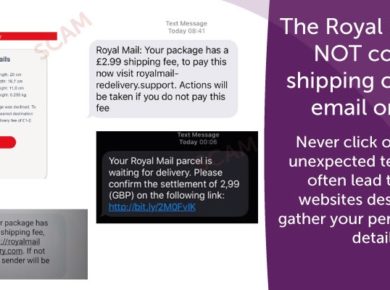Winning the lottery can feel like a dream come true, but what happens after the initial euphoria? Understanding the tax implications of your windfall in the UK is crucial. In this comprehensive guide, we delve into the world of lottery winnings and taxes. You might be surprised to learn that while the jackpot lands in your account tax-free, there’s more to the story. From gifting to family members to potential taxes on interest earned, we’ll explore the nuances of UK tax laws to help you navigate your financial future post-lottery win with confidence and clarity.
Understanding Tax on UK Lottery Winnings
In the UK, the moment of winning the lottery is often shrouded in sheer joy and disbelief. Picture this: You’ve just won a significant sum in the National Lottery, Euromillions, or maybe a scratch card game. Unlike many other forms of income, lottery winnings in the UK come with a pleasant surprise – they are entirely tax-free. This means the amount you see on that winning ticket is precisely what you’ll receive in your bank account. No deductions for income tax, capital gains tax, or national insurance. It’s all yours to keep.
But as with most financial windfalls, there are subtleties to consider. For instance, once your prize money hits your bank account and starts earning interest, that interest is subject to income tax. Furthermore, should you pass away, your unspent lottery winnings become part of your estate. This brings into play potential inheritance tax implications for your beneficiaries. Understanding these aspects is crucial for any lottery winner who wishes to manage their newfound wealth wisely.
Navigating Gifting and Inheritance: The Lottery Winner’s Guide
Winning the lottery can also open up opportunities to share your fortune with loved ones. In the UK, the rules around gifting money from lottery winnings align with general guidelines for money gifts. A notable point is the inheritance tax consideration. Each tax year, which runs from April 6th to the following April 5th, you can gift up to £3,000 without it impacting inheritance tax. This allowance can cover various gifts, from birthday presents to Christmas surprises. If unused in one year, this allowance can be carried forward, allowing you to gift up to £6,000 in the subsequent year.
Additionally, smaller gifts up to £250 can be given to any number of people, as long as you haven’t used your £3,000 allowance on the same person in that tax year. These nuances are essential to grasp, particularly if you plan to distribute part of your lottery win among family and friends.
Understanding Gift Allowances
In addition to your annual gift allowance, there are other opportunities for tax-exempt gifting. For instance, if a family member is getting married, you can gift up to £1,000 to a cousin, aunt, or nephew, £2,500 to a grandchild or great-grandchild, and a significant £5,000 to your child, without worrying about inheritance tax. These amounts are over and above your annual £3,000 gifting allowance. For example, if your daughter is getting married, you could gift her £5,000 for the wedding and an additional £3,000 as part of your annual allowance.
Moreover, supporting a relative’s living expenses, especially if they are under 18 or an elderly dependent, can also be exempt from inheritance tax. These rules provide a degree of flexibility and generosity in sharing your lottery winnings, ensuring that your loved ones can also benefit from your good fortune.
Understanding the 7-Year Rule on Gifts
An essential aspect of gifting in the UK, especially after a lottery win, is the 7-year rule. This rule means that any gifts made, whether in cash or assets, are still considered part of your estate for seven years from the date of the gift. This regulation aims to prevent the evasion of inheritance tax through last-minute gifting. For a lottery winner, this is particularly significant as the value of your estate increases substantially. For example, if you gift £50,000 to a family member and haven’t used any of your annual allowance, £3,000 of that gift is immediately outside of your estate. However, the remaining £47,000 remains part of your estate for the next seven years, potentially affecting inheritance tax calculations if you pass away within that period.
Tax Implications for Larger Gifts from Lottery Winnings
When it comes to larger gifts from your lottery winnings, the tax scenario gets more interesting. There’s technically no limit to the amount you can gift tax-free to family or friends. For instance, gifting a million pounds to your family wouldn’t incur any immediate ‘gift tax’. However, anything above your annual allowances could be subject to inheritance tax if you pass away within seven years of making the gift. Therefore, strategic planning is vital when deciding how much to gift, ensuring it aligns with your long-term financial plans and tax considerations.
In summary, lottery winnings in the UK are indeed tax-free at the point of receipt. However, subsequent interest earned on these winnings is subject to income tax. When it comes to sharing your fortune with family and friends, the primary consideration is the potential impact on inheritance tax, particularly under the 7-year rule. By understanding these tax implications, lottery winners can make informed decisions, ensuring both immediate joy and long-term financial security.










